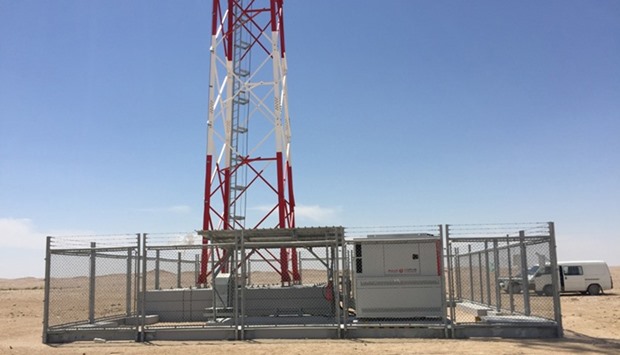Vodafone Qatar is rolling out a number of hybrid power systems across its sites as part of the company’s energy efficiency measures and new networks technologies that will help reduce its carbon footprint in the country.
Vodafone’s hybrid power systems, which combine diesel generators with batteries for greater fuel efficiency, use smart controls to cut diesel use by up to 64% at sites that depend on diesel generators for primary or back-up power in areas with limited access to reliable grid electricity.
“So far, we have deployed nine hybrid sites with another 51 more planned for the coming few months,” said Ramy Boctor, chief technology officer of Vodafone Qatar.
Any telecom operator, running an off-grid networks infrastructure, must deploy a diesel generator to power up the site. These diesel generators operate on a 24/7 basis without being switched off. On a normal diesel generator-backed site, there is at least 24,000 litres of fuel burnt every year.
On a hybrid power solution, a telecom operator can run the same diesel generator for six to eight hours only with the rest being powered up by specialised batteries. This helps ensure cell site stability and reduces overall air and noise pollution in the area.
Research shows that information and communications technology (ICT) can help other industries achieve significant carbon savings. To do so, the ICT sector’s own footprint may need to grow slightly, but this increase is significantly outweighed by the carbon avoided in other sectors.
Asserting that the key focus is on utilising energy efficient technologies in Vodafone Qatar’s networks, data centres and operations, Boctor said this is where the company can make the biggest difference to its environmental footprint – by tackling related carbon dioxide (CO2) emissions.
“Also, we can make the strongest business case by saving energy costs, yet ensuring our corporate social responsibility.”

One of the hybrid power systems set up by Vodafone Qatar.
